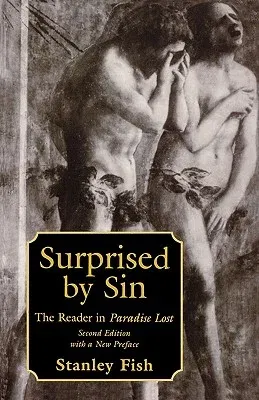Stanley Fish
(Author)Surprised by Sin: The Reader in Paradise Lost, Second Edition with a New PrefacePaperback, 15 March 1998

Qty
1
Turbo
Ships in 2 - 3 days
In Stock
Free Delivery
Cash on Delivery
15 Days
Free Returns
Secure Checkout

Print Length
440 pages
Language
English
Publisher
Harvard University Press
Date Published
15 Mar 1998
ISBN-10
067485747X
ISBN-13
9780674857476
Description
Product Details
Author:
Book Format:
Paperback
Country of Origin:
US
Date Published:
15 March 1998
Dimensions:
21.01 x
14.05 x
3.1 cm
ISBN-10:
067485747X
ISBN-13:
9780674857476
Language:
English
Location:
Cambridge
Pages:
440
Publisher:
Weight:
508.02 gm